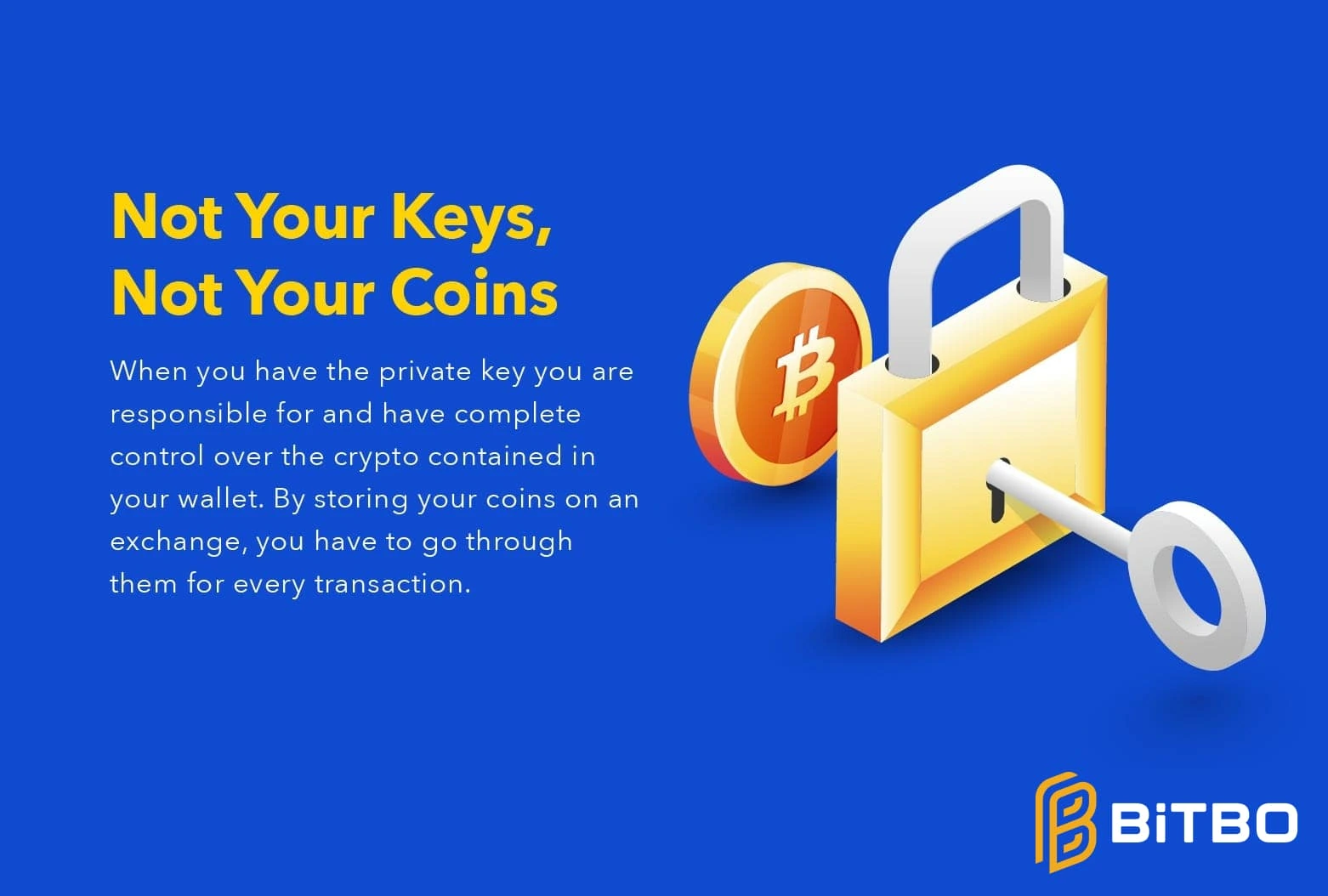Not Your Keys, Not Your Coins

Key Takeaways
- Owning the private key means you have access to the coins.
- Crypto exchanges only really give you an IOU to the coins.
- Self-custody is more work but protects you.
When you hold the private key, you hold the coins. The opposite is also true. If another party holds the private key, you aren’t the sole owner of your assets.
As Andreas Antonopoulos so eloquently put it:
“Your keys, your Bitcoin. Not your keys, not your Bitcoin.”
Types of Keys
There are actually two types of keys connected to a wallet:
- Public Keys
- Private Keys
The public key is like your bank account number. It’s your wallet’s receiving address. It’s called the public key because anyone can send crypto to this address without jeopardizing your wallet’s security.
Your private key on the other hand is like your bank account password, PIN, and credit card number rolled into one. It is the all-access pass to your crypto-wallet. Your private key is used to verify ownership of your wallet address.
If you lose your private key you lose access to your wallet.
If the private key becomes compromised (e.g. someone else knows it), then your assets are in danger of being transferred to another wallet, if the perpetrator hasn’t done so already.
Why should you own your “Keys”?
Self-Custody is the pinnacle of the Bitcoiner mindset. The belief being:
If you don’t own your keys, you’re not the gatekeeper to your coins.
Without a private key, your crypto is being held by a third-party (i.e. your preferred crypto exchange). They act the gatekeeper to your coins so long as your coins are on their exchange.
Generally speaking, this isn’t a problem.
Risks
Just know that there have been incidents of major Bitcoin and crypto exchanges getting hacked and users losing everything.
This is just one of the harsh truths of leaving your assets on the exchange. Not to mention, your crypto exchange has the power to control the trades you make, limit your withdrawals, revoke your access, and freeze transactions at their discretion.
In reality, the exchange holds your crypto and grants you access to it.
Even though you have the password to your account on the exchange, and you can see your account balance every time you log in, you are not the true owner because you have to log in to the exchange to make transactions. The alternative is storing your assets in a wallet you hold the private key to.
Plenty of Bitcoiners advise against holding (or, in their case, hodling) large amounts of coins on an exchange for extended periods of time.
That being said:
If you don’t mind sacrificing security for convenience then there’s no problem with keeping your crypto on your preferred exchange.